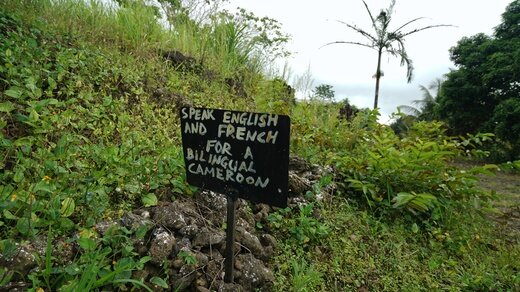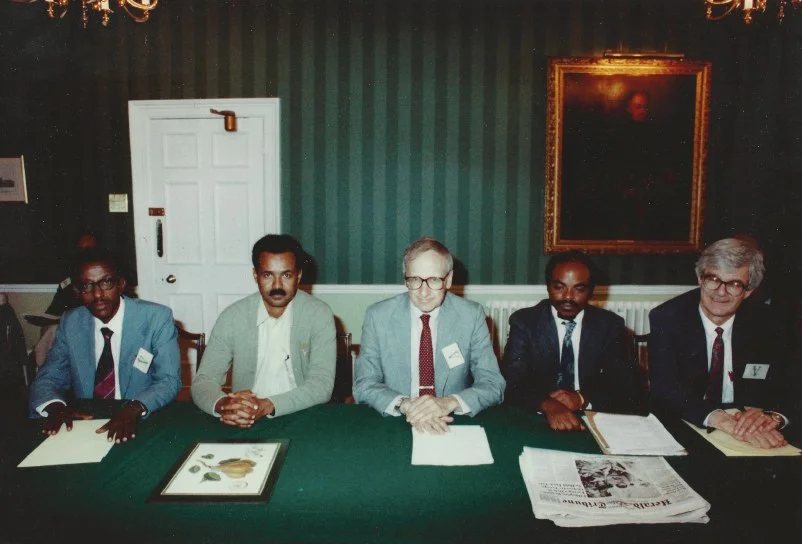For John Campbell’s “Africa in Transition” blog on the Council on Foreign Relations website, I authored a piece on how lessons from the Eritrean War of Independence offer clues to a potential endgame to Cameroon’s conflict. It is reproduced below.
The violent conflict in Cameroon, still rarely discussed in Washington, is becoming increasingly dire. Both President Paul Biya’s Francophone regime in Yaounde and the Anglophone separatists in the southwest region are accused of brutal human rights abuses, including the burning of villages, attacks on schools, and the killing of men, women, and children. Despite mediation attempts by the Swiss government and sanctions by the Trump administration, there are no signs of any progress towards a negotiated settlement.
In 1991, I mediated an end to a different African conflict with some striking similarities: the Eritrean war of independence, which raged for nearly three decades. Lessons from that precedent offer clues to a potential endgame in Cameroon.
Read MoreIt is not surprising that after three years in office – three years of famine, violence, and serious political and social instability – Ethiopian Prime Minister Hailemariam Desalegn has resigned, effective with the swearing-in of his replacement within a few weeks. The regime has also announced a six-month “state of emergency,” under which political and press freedoms are severely curtailed.
What do these developments mean for the Ethiopian people?
Read MoreSince seizing the government by force of arms in 1991, the TPLF-controlled Ethiopian regime has maintained monopolies over economic and political power ever since, and has therefore dominated all other nationalities and ethnic groups. It is this refusal to share political power and wealth on the part of the TPLF that is causing the violent demonstrations of dissent within the Oromo and Amhara states. Government efforts to divert attention to cross border violence between Oromo and Somali states cannot hide its responsibility for the instability brought on by its refusal to grant the Ethiopian people the self-determination granted by their constitution.
Read More(From International Policy Digest)
Last week marked the 25th anniversary, or “Silver Jubilee,” since the East Africa nation Eritrea gained independence from Ethiopia in a conflict that lasted three decades. Ambassador Cohen worked closely with leaders of both nations and in 1991 brokered a peace accord that was to establish a framework for future mutual progress. International Policy Digest interviewed Amb. Cohen to learn his thoughts and insights on Eritrea’s recent history and path forward.
Read MoreThere are some intriguing new developments in the Red Sea region.
Eritrea has joined the “Islamic Coalition Against Terrorism.” What is so interesting about that? Well, the list of countries in that coalition are all good friends of the United States. American arms exporters make lots of dinars selling to those friends.
So what does all this have to do with Eritrea? Well, can one say that the friend of my friend should also be my friend? Unfortunately, Eritrea and the US still do not call themselves friends. So, what is going on?
Read MoreHey, all you Abyssinians out there. While you are wasting time squabbling with each other and not talking to each other, the governments of the Arabian Peninsula are eating your lunch.
Have you noticed that warships from the United Arab Emirates are operating out of the port of Asab 24/7? Their interest is in Yemen, not in Eritrea or Ethiopia. There are reports that Saudi Arabia has taken a 50-year lease on Asab. If that is true, the next step will be Sharia Law in the Horn of Africa big time.
I think it is time for Abyssinians to take back control of the west bank of the Red Sea before it is too late.
One way to accomplish this is for Eritrea and Ethiopia to finally end the war of 1998-2000 and normalize relations. It can be done as a win-win.
Read MorePRESSURE THE UNITED STATES TO ALLOW THE UN TO LIFT SANCTIONS ON ERITREA IMMEDIATELY.
Normalization with Eritrea has become more important than ever before. US national security interests in Yemen and the Arabian Peninsula are at stake.
Back in December 2013, I wrote an article for “African Arguments” that called for the international community to “bring the State of Eritrea in from the cold.” I argued that UN sanctions should be lifted, and that Eritrea and Ethiopia need to be reconciled for the economic benefit of both nations.
Read More




